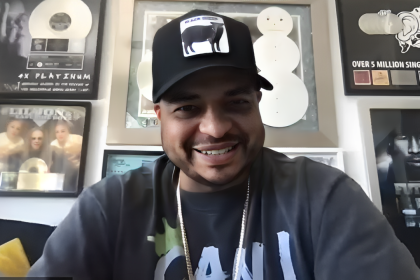You’ve read the books. You’ve downloaded the budgeting apps. You’ve listened to all those money podcasts. But somehow, your financial situation stays frustratingly the same. If knowledge was all it took to build wealth, we’d all be rich by now. The uncomfortable truth? Your psychology might be sabotaging your finances in ways you don’t even realize.
The childhood money scripts running your adult life
Remember watching your parents argue about money? Or hearing them whisper anxiously about bills when they thought you were asleep? Those moments didn’t just disappear—they wrote invisible scripts in your brain that still dictate your financial behaviors today.
These “money scripts” form during childhood and adolescence, often without any conscious awareness. They’re the unwritten rules and beliefs about money that feel like absolute truth to you but are actually just internalized patterns from your early environment.
If you grew up hearing “money doesn’t grow on trees” or “we can’t afford that” repeatedly, you might have developed a scarcity mindset that makes it nearly impossible to take financial risks or invest in your future. Alternatively, if money troubles were met with retail therapy in your family, you might unconsciously use spending as your emotional regulation system.
These scripts run deepest when they’re never discussed openly. The family that considered money talk “vulgar” or “private” likely created adults who feel uncomfortable even thinking about financial planning. The parent who shielded you from all money concerns may have unintentionally created a reality gap between financial actions and consequences.
Breaking these scripts starts with identifying them. When you have a strong emotional reaction to a financial situation—anxiety about checking account balances, impulsive luxury purchases after a bad day, or paralysis around investment decisions—pause and ask yourself, “Where did I learn this response?”
The emotional spending that’s draining your future
That rush of pleasure when you click “buy now” isn’t just enjoyable—it’s biochemical. Shopping triggers dopamine, the same neurotransmitter activated by food, sex, and certain drugs. When life feels stressful or empty, that dopamine hit becomes a form of self-medication.
This wouldn’t be a problem if it happened occasionally. But for many, emotional spending has become their primary coping mechanism for everything from boredom to heartbreak to work stress. Each purchase provides momentary relief but creates longer-term financial pressure that then triggers more negative emotions—and the cycle continues.
Breaking this pattern requires developing alternative coping strategies that provide similar emotional benefits without the financial downside. The key insight is recognizing that you’re not really buying products—you’re buying feelings. Once you identify which feelings you’re seeking, you can find cheaper or free ways to achieve them.
Craving excitement? A challenging hike might deliver the same adrenaline as a spontaneous purchase. Seeking comfort? A conversation with a friend could soothe you more effectively than a new sweater. The most powerful shift happens when you realize you’ve been using money to meet emotional needs it can never truly satisfy.
The invisible peer pressure emptying your accounts
Humans are social creatures wired to match the behaviors of those around us. This social mirroring happens largely unconsciously—you naturally adjust your spending to reflect what seems “normal” in your social circle.
This explains why someone who felt financially comfortable in one setting suddenly feels “broke” after changing social groups. Your reference point for “reasonable” spending calibrates to what you see others doing, regardless of whether their financial situations are comparable to yours.
Social media has supercharged this effect, exposing you to the consumption patterns of people far outside your actual peer group. The vacation photos, home renovations, and restaurant meals flooding your feeds create a distorted perception of normal spending that can make even high earners feel financially inadequate.
Breaking free from financial peer pressure requires consciously choosing your reference points. This might mean unfollowing accounts that trigger spending envy, being more selective about who you discuss money with, or finding communities that value financial responsibility over conspicuous consumption.
Remember that much of what you see is financial theater—people spending money they don’t have for experiences they can’t afford to impress people they don’t know. The truly wealthy often practice what’s called “stealth wealth,” keeping their financial status private rather than putting it on display.
The comfort zone keeping you financially stuck
Humans are creatures of habit who crave the familiar, even when the familiar isn’t working well. This status quo bias explains why people stay in financial situations they know are problematic—the known discomfort feels safer than the unknown possibilities of change.
If you’ve spent years living paycheck to paycheck, the habits and workarounds you’ve developed have become comfortable in their own way. You know exactly how to juggle bills, which payment can be delayed, and how to make things stretch when necessary. Financial stability would require building entirely new habits and skills, which feels threatening to your brain’s security system.
This comfort with discomfort extends to income as well. Many people unconsciously sabotage opportunities to earn more because they’ve internalized a specific financial identity. If you’ve always seen yourself as someone who struggles with money, financial success can trigger surprising anxiety or impostor syndrome.
Breaking through this comfort zone requires making the familiar uncomfortable and the unfamiliar less threatening. Start by associating your current financial habits with their long-term pain rather than their short-term comfort. Then break down unfamiliar financial behaviors into small, manageable steps that don’t trigger your brain’s threat response.
The financial avoidance destroying your future
When was the last time you really looked at your complete financial picture? For many people, the answer is never. Financial avoidance—the tendency to ignore, postpone, or distract yourself from money matters—might be the most dangerous psychological pattern of all.
This avoidance takes many forms. Not opening bills. Checking account balances only when absolutely necessary. Ignoring retirement planning because it feels overwhelming. Each instance seems small, but together they create a pattern of financial blindness that makes improvement impossible.
The psychology behind this avoidance is simple but powerful. Your brain treats financial stress like physical danger, triggering the same fight-flight-freeze response you’d have facing a predator. When you avoid financial information, you’re essentially choosing the “freeze” response—and your brain rewards this avoidance with immediate relief.
The cruel irony is that while avoidance reduces anxiety in the moment, it dramatically increases your overall financial stress by allowing problems to grow unchecked. The credit card balance accruing interest, the retirement account not being funded, the budget leaks not being addressed—all worsen in the dark.
Breaking the avoidance cycle requires changing your relationship with financial information. Start by recognizing that checking your finances is a form of self-care, not self-punishment. Create simple, regular routines for financial check-ins that become as automatic as brushing your teeth. And most importantly, separate the act of gathering financial information from the pressure to immediately solve every problem you discover.
The mindset shift that changes everything
The most powerful financial tool isn’t a budgeting app or investment strategy—it’s your beliefs about what’s possible for you. People who believe their financial situation can improve take actions that match that belief. Those convinced they’re destined to struggle find evidence to confirm that perspective.
This isn’t about magical thinking or manifesting money through positive vibes. It’s about how your beliefs shape your attention, decisions, and actions in ways that create self-fulfilling prophecies. If you believe wealth is only for the lucky or privileged, you’ll miss opportunities that don’t fit that narrative. If you believe financial stability is achievable through consistent effort, you’ll notice and act on possibilities others overlook.
The shift begins with questioning your financial “truths.” When you catch yourself thinking “I’ll always be bad with money” or “I’ll never earn enough,” challenge these absolutes. Look for exceptions to your beliefs and people who’ve changed their financial trajectories from starting points similar to yours.
Most transformatively, start seeing your financial habits as behaviors you can change rather than permanent traits that define you. You aren’t inherently a spender or saver, financially anxious or confident—you’ve practiced certain patterns until they’ve become automatic. With awareness and consistent effort, different patterns can become your new normal.
The path to financial change doesn’t start with a budget. It starts with understanding the psychology driving your financial choices—and recognizing that when you change your relationship with money from the inside out, the external results will naturally follow.

















